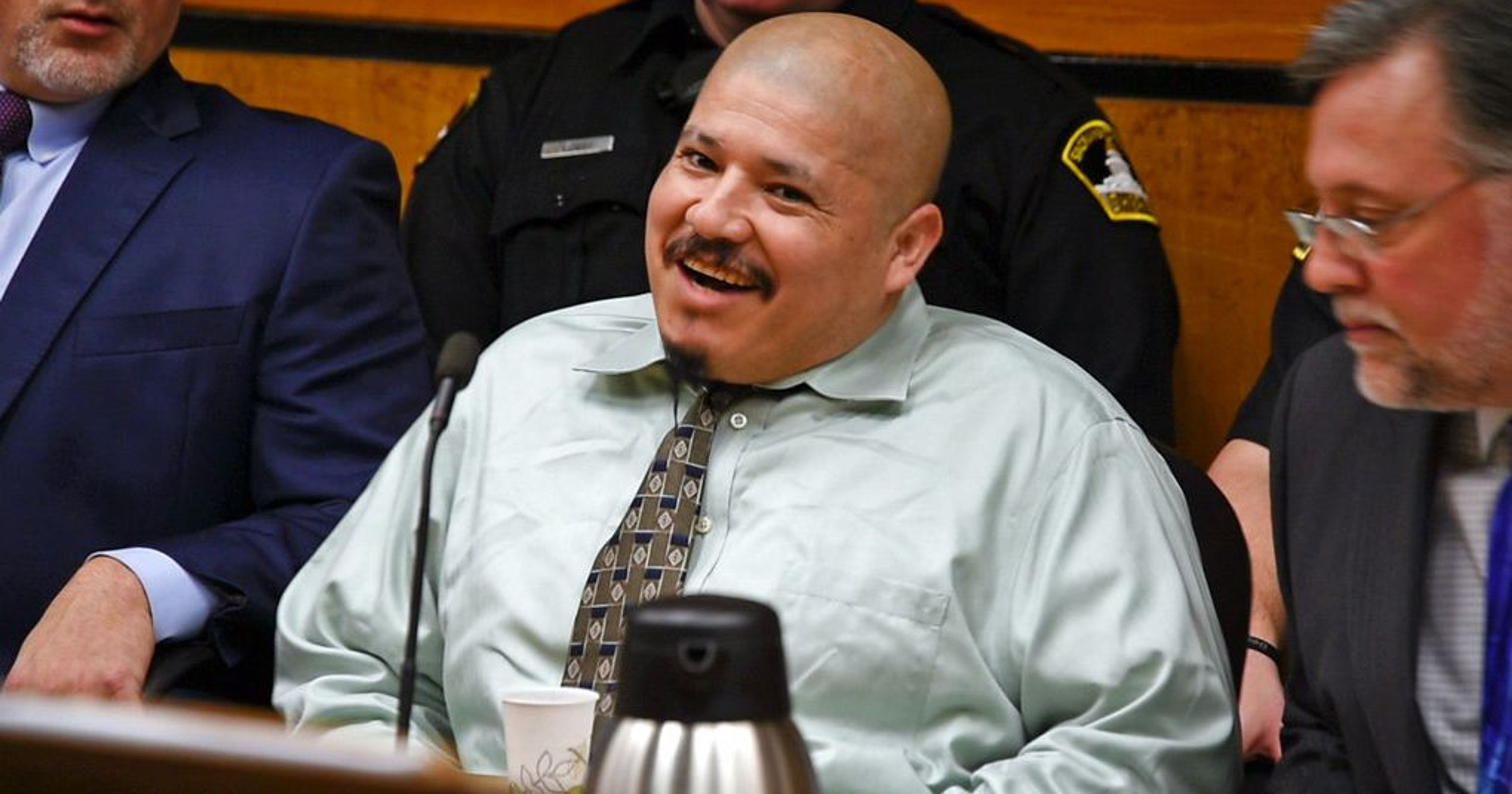The five most racist political ads
Donald Trump is accused of stoking racism with new midterm ad, but he’s not the first to cause controversy

A free daily email with the biggest news stories of the day – and the best features from TheWeek.com
You are now subscribed
Your newsletter sign-up was successful
Donald Trump has promoted a provocative political advertisement five days before the US midterm elections, prompting new accusations of racism against the president.
The video featured the trial of Luis Bracamontes, an undocumented Mexican immigrant who was deported twice before re-entering the US and killing two police officers in a shooting spree in 2014.
In the clip, Bracamontes can be heard saying “I'm going to kill more cops soon” and claiming he “wished he’d killed more” during the shooting. Subtitles flash across the screen reading “Democrats let him into our country. Democrats let him stay,” before cutting to a group of unidentified migrants pulling on fences - although Bracamontes appears to have entered the country while George W. Bush, a Republican, was president.
The Week
Escape your echo chamber. Get the facts behind the news, plus analysis from multiple perspectives.

Sign up for The Week's Free Newsletters
From our morning news briefing to a weekly Good News Newsletter, get the best of The Week delivered directly to your inbox.
From our morning news briefing to a weekly Good News Newsletter, get the best of The Week delivered directly to your inbox.
Tom Perez, chairman of the Democratic National Committee, called it the “dog-whistle of all dog-whistles”, while Republican Senator Jeff Flake said the ad was “sickening”.
CNN has called it “the most racially charged national political ad in 30 years”. Here are five more that have provoked a similar backlash.
Willie Horton, 1988
The 30-year-old advert referred to by CNN is the notorious “Willie Horton” campaign ad financed by supporters of George H.W. Bush in the 1988 US presidential election against Democrat Michael Dukakis.
A free daily email with the biggest news stories of the day – and the best features from TheWeek.com
Horton was a convicted murderer serving a life sentence, who was temporarily released from prison in June 1986 in Massachusetts, where Dukakis was governor. Horton escaped, and the following year raped a white woman and stabbed her fiance.
CNN says the ad “has since come to be seen as one of the most racially problematic in modern political history, since it played into white fear and African-American stereotypes”. It was also seen as an effective blow against the Dukakis campaign.
Turkish immigration, 2016

As the 2016 Brexit referendum closed in and the rhetoric between the two sides of the debate reached fever pitch, the official Vote Leave campaign, led by Boris Johnson and Michael Gove, released a series of posters and online adverts suggesting that Turkish, Syrian and Iraqi migrants were heading for the UK.
Most of them contained the phrase “Turkey’s 76 million people are being granted visa-free travel by the EU”, followed by a question: “Good idea?” and then two boxes reading “Yes” and “No”.
The New Statesman described the claims in the posters as “wild” and “bizarre”. and in 2018 Gove said the Leave campaign was wrong to publish the adverts. “If it had been left entirely to me, the Leave campaign would have a slightly different feel,” he told The Independent.
Smethwick in the general election, 1964
In what has been dubbed “Britain’s most racist election” by The Guardian, Labour and the Conservatives went head to head in the Midlands constituency of Smethwick.
During a bitter campaign, Conservative candidate Peter Griffiths circulated a leaflet containing the catchphrase: “If you want a n****r for a neighbour, vote Labour.”
He duly won, unseating Labour MP Patrick Gordon Walker.
Labour PM Harold Wilson described it as an “utterly squalid” campaign, but Griffiths defended his use of the phrase. “I would not condemn any man who said that,” he told The Times shortly before the election. “I regard it as a manifestation of popular feeling.”
“Thank you, Bruce Rauner”, 2018
Despite claims that Trump’s newest advert is the most racially charged in decades, it may not even be the most controversial from this year.
In the Republican primaries for the forthcoming Illinois governor's election, a new ad for Republican Jeanne Ives was denounced as not just “anti-immigrant” and “racist” but also “sexist” and “transphobic”, Politico reports, with leaders from both parties calling for its removal.
The TV spot depicts a number of people sarcastically thanking the incumbent governor - fellow Republican Bruce Rauner - for a series of policy changes he has implemented or supported. “Thank you for signing legislation that lets me use the girl’s bathroom,” says one male actor, while a female actor says “thank you for making all Illinois families pay for my abortions” while wearing a pink hat symbolic of recent women’s marches.
“Thank you for opposing law enforcement and making Illinois a state sanctuary for illegal immigrant criminals,” says another. “Thank you for being the worst Republican governer in the country. Thank you for betraying Illinois Republicans.”
“This TV ad has no place in Illinois,” Rauner’s campaign spokesman Will Allison said - and voters apparently agreed. Ives was eliminated in the primaries.
“This Is Alabama, We Speak English”, 2010
In this widely-mocked TV ad, Republican candidate for governor Tim James spoke out against the supposed waste of government resources it takes to give driving licence examinations in 12 separate languages.
“This is Alabama,” he says. “We speak English.”
“If you want to live here, learn it. Maybe it's the business man in me, but we'll save money. And it make sense.”
The advert was deemed “pretty bizarre”, Alternet says, “since every year likely zero Alabamans are killed on the roads because the driver of a car doesn’t speak English”.
The Atlantic adds that “the ethnic coding in the ad is unmistakable, especially because it's not the type of thing that voters in Alabama would care about unless someone deigned to bring it to their attention”.
-
 What to know before filing your own taxes for the first time
What to know before filing your own taxes for the first timethe explainer Tackle this financial milestone with confidence
-
 The biggest box office flops of the 21st century
The biggest box office flops of the 21st centuryin depth Unnecessary remakes and turgid, expensive CGI-fests highlight this list of these most notorious box-office losers
-
 The 10 most infamous abductions in modern history
The 10 most infamous abductions in modern historyin depth The taking of Savannah Guthrie’s mother, Nancy, is the latest in a long string of high-profile kidnappings
-
 Epstein files topple law CEO, roil UK government
Epstein files topple law CEO, roil UK governmentSpeed Read Peter Mandelson, Britain’s former ambassador to the US, is caught up in the scandal
-
 Iran and US prepare to meet after skirmishes
Iran and US prepare to meet after skirmishesSpeed Read The incident comes amid heightened tensions in the Middle East
-
 Israel retrieves final hostage’s body from Gaza
Israel retrieves final hostage’s body from GazaSpeed Read The 24-year-old police officer was killed during the initial Hamas attack
-
 China’s Xi targets top general in growing purge
China’s Xi targets top general in growing purgeSpeed Read Zhang Youxia is being investigated over ‘grave violations’ of the law
-
 Panama and Canada are negotiating over a crucial copper mine
Panama and Canada are negotiating over a crucial copper mineIn the Spotlight Panama is set to make a final decision on the mine this summer
-
 Why Greenland’s natural resources are nearly impossible to mine
Why Greenland’s natural resources are nearly impossible to mineThe Explainer The country’s natural landscape makes the task extremely difficult
-
 Iran cuts internet as protests escalate
Iran cuts internet as protests escalateSpeed Reada Government buildings across the country have been set on fire
-
 US nabs ‘shadow’ tanker claimed by Russia
US nabs ‘shadow’ tanker claimed by RussiaSpeed Read The ship was one of two vessels seized by the US military